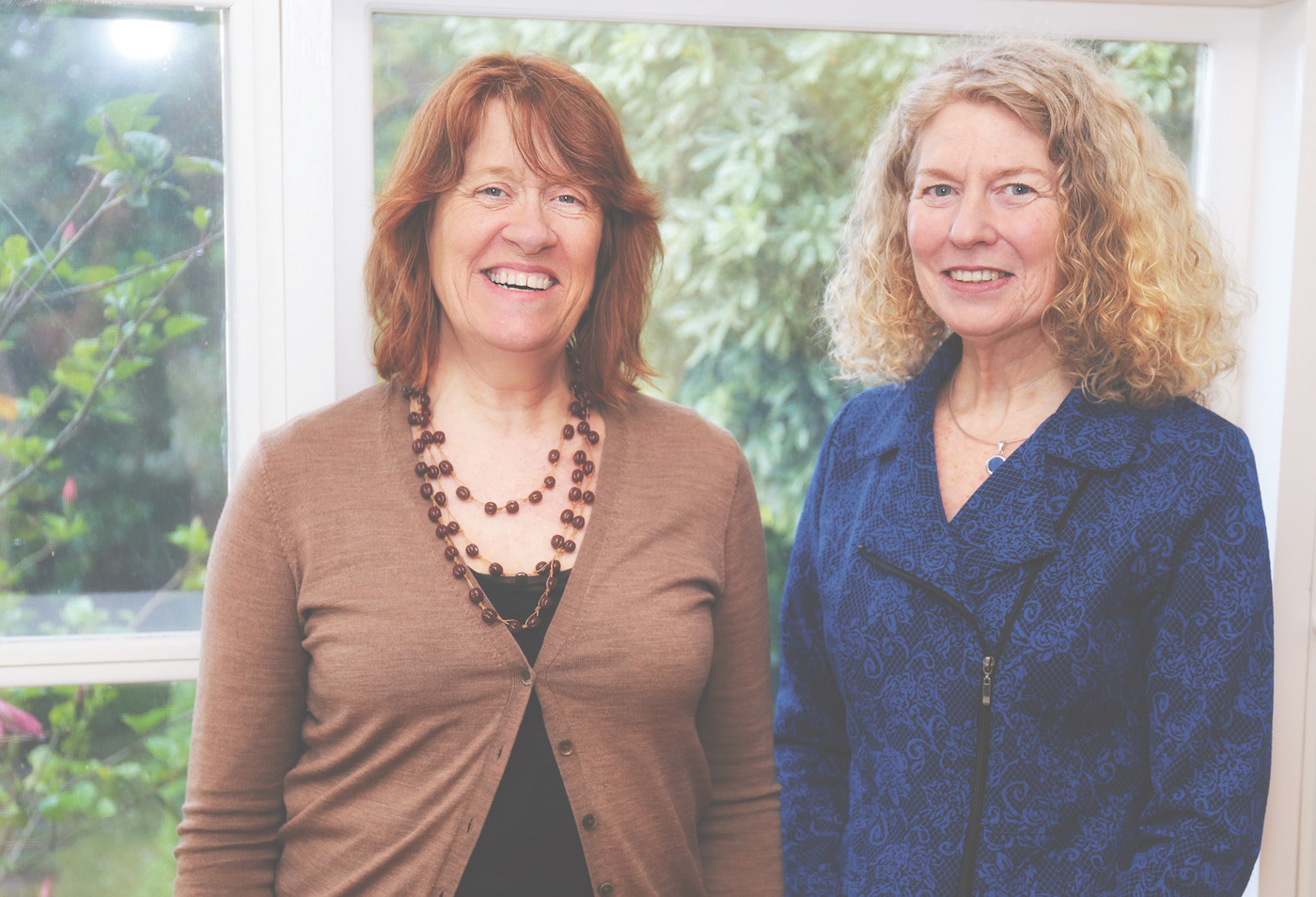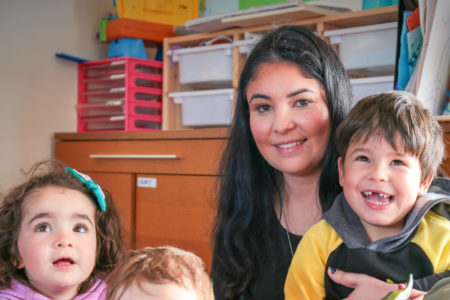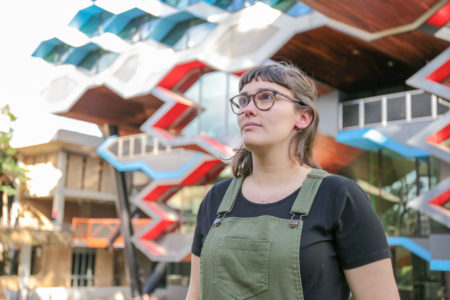Interview by David Southwell
What is your job?
I am the coordinator of the Bethel Centre and a counsellor. Bethel is an independent and free counselling service for people connected with the Uniting Church.
Can you tell me a bit more about the Bethel Centre?
Bethel was established in 1997, originally in response to child sexual abuse. From day one, however, it addressed a far broader range of challenges than this to support anyone experiencing difficulties in their experience of the church. This could include anything from bullying and intimidation to struggling with relating to and communicating with others, or working with challenging dynamics in meetings. Family violence is also something we have responded to.
Who else works here?
Wendy Driscoll is another counsellor and Susy Herlihy handles the operations side of things.
Has the centre been open during the COVID period?
We’ve been open right through the period of the pandemic. Of course we haven’t been able to see people in the physical space of the Bethel building. Instead all our counselling sessions are via Zoom or telephone. The centre has become a virtual space where Wendy and I beam into people’s study, kitchen or bedroom from our own homes. We are aware of the intimacy of this for our clients and for us.
At first I think we all found it strange, but now it has become kind of ordinary and everyday. Bethel has always been a place of welcome and has always been a safe place to confide. Though we are not in the same room with clients we’ve continued to support people to relax and talk openly with a cuppa in hand.
The pandemic won’t last forever. We are already starting to think about what we need to consider before coming out of lockdown. Of course we will need to continue to manage the risk but we are looking forward to being able to return to seeing people face to face.
Have you noticed a spike in people needing counselling since the beginning of COVID-19?
There has been a rise in the number of people seeking support. While it is a noticeable rise we had anticipated that we might be inundated. However, I think the more significant rise in numbers is yet to come because right now people are doing all they can to hold on and manage what’s happening for them. People’s workloads have increased. They are adapting to working from home and dealing with the challenges of homeschooling along with any commitments they may have to their church communities.
On top of that we are all working out how to maintain contact with family and friends so that we can stay connected. I anticipate when this turbulent time of the pandemic has passed there will be a need to process the impact COVID-19 has had.
How has it been for ministers during COVID-19?
Ministers in particular have had a stressful time. Many have the same challenges as we all do, but on top of that they have had to become familiar with the COVID-19 operational protocols, adapt to the online space to deliver services, work out how to conduct funerals and find new ways to manage all their communication with congregations.
Of course there have been other key people in congregations who have contributed to managing these new responsibilities and the associated stress. What is heartening is that presbyteries appear to be doing what they can to support ministers. One presbytery got in contact with Bethel. Although they were holding weekly online meetings with ministers, some expressed a need for additional support with the issues being raised. In response, we set up a weekly group for those interested. This group is up and running now.
It’s a time for them to check in with each other to talk about their experience of COVID, the changed environment, and any other issues emerging for them, especially in regional Victoria.
Is the workload for ministers higher than usual during this period?
For some, the workload has increased. There’s a sense of diversifying, in order to try to meet changed needs. I think some in the country are finding it easier than before, because they’re not having to travel such distances. Having said that, I think they find ways to have that time eaten up, because there is always a need and there is a sense of, “Well, I can’t be idle, I must be engaged in earning my keep”.
Are ministers able to talk about these challenges?
Yes, that’s what we’re hearing. There’s a sense that it’s OK to be vulnerable, because everybody is in the same boat. Certainly people are experiencing similar struggles, but some are absolutely thriving, because the tech stuff comes easily to them. Those less comfortable with technology are on a steep learning curve and the increased workload can certainly contribute to stress and anxiety.
Ministers already have a big job to do and I don’t think congregation members are truly aware of the scope and responsibilities of their role. Some will have heard me say this before, but I am in awe of ministers and the breadth of the work they undertake.
It’s different for me. As a counsellor, things are far more defined. I work each day from 9.30-5.30pm, each counselling session is contained by a 1-hour appointment and my work is defined by specific training. Ministers instead work six days a week, are available in the evenings and jungle multiple roles while dealing with everything from birth to death. Is it any wonder that so many endure high levels of stress?

Julie McDonald says “Bethel has always been a place of welcome and has always been a safe place to confide.” Pictured with fellow counsellor Wendy Driscoll.
Do you think that, for ministers and for many of us in general, it is a challenge to have the lines between our home and work life so blurred, as they are now?
I do. Suddenly, everything is in your home, it’s in your private space and there isn’t anywhere else to go or turn. I think that is a big issue; things can become very insular. I even find, myself, that there’s a kind of Twilight Zone experience of “what is this?” It all feels a bit surreal and disorientating or discombobulating.
For me, I have everything that’s happening with work, and then my cat will distract me, because she’s caught something. Then while she’s trying to grab my attention the doorbell will go and a driver will be wanting to deliver a parcel to one of my neighbours at exactly the time I am meant to be joining a Zoom meeting.
Even though it’s mundane, you’re finding yourself constantly distracted by the two worlds of work and home. I think it’s hard for us all. I find I have to go out for a walk every day to disconnect from that insular intensity.
What else do you think is a challenge during this period?
There’s a lot of trying to orientate yourself to the environment. How do you roll with the bigger picture of what is happening in the world? We’re in lockdown and then it looks like we are coming out of it, and then we’re in lockdown again. I think that can lead many of us to feel really unsettled. That’s something lots of other cultures all over the world have to live with, during war and conflict for example, but in our country we aren’t used to experiencing that ongoing uncertainty.
Young people are particularly struggling with their mental health during this pandemic – have you had any young people knocking on Bethel’s virtual door?
No, we haven’t. Traditionally, Bethel has seen few young people, however we are wanting to address that and promote the service to young people, particularly at this time. We are currently making contact with young leaders in the Church to hear from them and get their take on things.
Can you talk about Bethel’s role in the church during “normal” times?
People often come to Bethel when things have reached crisis point. We want people to know they don’t have to wait until it gets that bad. They don’t have to tough it out and they can come to Bethel and get the help they need before things get to that point. In fact we often find that when they do people are surprised by the support they get and the difference it can make.
What does Bethel offer, as opposed to a secular counselling service?
The most significant thing is that we understand that what has happened to someone has happened in their church community. We often work together with them to understand and grasp where their spirituality fits in respect of the conflict and hurt they have experienced. It concerns people’s relationships with their fellow members in the congregation. This can be with family or friends, between a minister and congregation member or between members of a ministerial team or church council. Often, relationship issues with others bring up a person’s relationship with God. That relationship is primary, intimate and really important to people. Addressing that is less common in secular counselling.
How do people normally find their way to Bethel?
The most common way people find out about us is by word of mouth. Past articles in Crosslight have encouraged people to call. We are currently trying to find new ways to promote the service. One thing we are in the process of doing is setting up a Facebook page that we hope will spread the word about what we do and what we are offering.
I’m also excited that we’re about to produce a podcast, called The Bethel Podcast, which we plan to release later this year. Rev Will Nicholas is very tech-savvy and he offered to help produce it. He’s based in Geelong, so we are doing it online together in a virtual studio. We are looking at different topics and challenges facing people and we’re going to use pop culture and theological references to explore issues. It will be really challenging and a lot of fun. We have invited a couple of young people to join us so we are looking forward to what they have to say.
What will be the format of the podcast?
Will and I will have a guest for each episode. Sandy Brodine, the chair of Bethel, will be our first guest. For the first episode, we felt we needed to give people an idea of where the name Bethel comes from – it’s a theological reference to Jacob’s Ladder. Jacob finds himself lost in the desert and there’s the ladder and there’s God and the angels and there’s the hope that change is possible, and that Jacob can be a changed man. Bethel can be that place of hope and transformation.
Where does the pop culture come in?
We’re looking at Dr Who and the idea of his vehicle, the Tardis. People don’t really know about Bethel. There’s this and kind idea that there is this service out there somewhere that’s floating out in space just like the Tardis. We are using the metaphor of the Tardis to reflect people’s experience, that once they cross the threshold of Bethel, it’s not what they expect. Like the Tardis, Bethel is bigger on the inside than on the outside. A spacious place that can surprise you, where change is possible. The aim of the podcast is to move beyond being too serious about what Bethel is or might be. It can be whatever you need, really, and it doesn’t have to be hard-core or scary or serious.
Is there anything you are wanting to promote right now?
Yes, we are about to run a four-week online group for ministers starting in early November called Creative Calm. The purpose is to support ministers to develop the habit of taking deliberate time out for themselves to re-fuel and re-energise. Participants will be asked to bring their sketch book, their knitting or crochet, or whatever creative project they want to work on. In the process of creating and joining in the conversation I will be offering some strategies to support carving out constructive time for rest and reflection.
Bethel Centre is at 59 Doncaster Rd, North Balwyn, and is open Mondays, Wednesdays and Thursdays, 9.30am-5.30pm. Telephone: (03) 9859 8700. Email: [email protected]
This article originally appeared in the October edition of Crosslight. To read the full magazine, click here.



